Archaeologists uncover 2,600-year-old blocks of white cheese in Egypt
Archaeologists in Egypt made an unexpected discovery on Saturday, opening a set of ancient pots to discover a block of halloumi inside, preserved for 2,600 years.
Yep, we’re serious—it was halloumi.
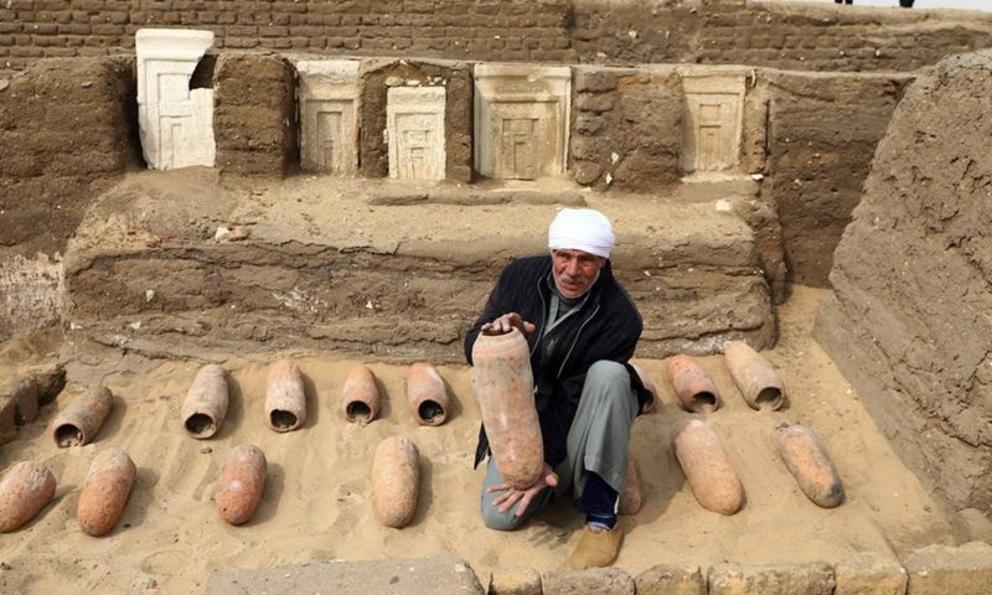
The ancient Egyptians ate a cheese they called haram (no, it wasn’t haram), which eventually evolved into the word halloum—aka halloumi.
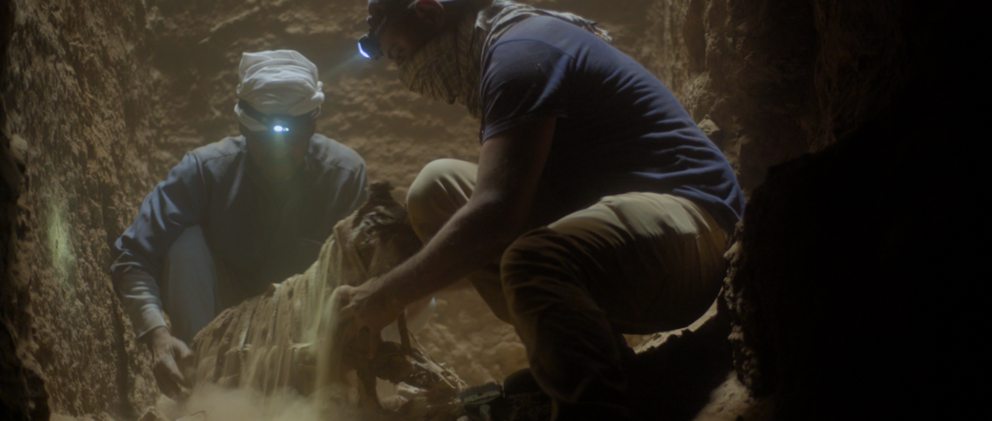
The world’s squeakiest cheese, which tastes at its rawest like new sneakers on a hospital floor in the best possible way, was found as part of the Egyptian archaeological mission working in Giza in the Saqqara antiquities area. Yep, the same place as Secrets of the Saqqara Tomb was set.
No word yet on whether it is edible, but perhaps they’re taking volunteers?
While some scientists point to Cyprus as the originate of the cheese during the Byzantine period, others dispute this, and claim it was previously known as haram in ancient Egypt.
The archaeologists found a number of clay pots that contained the cheese, which was inscribed in Demotic script, a type of writing that was discovered on the Rosetta Stone.
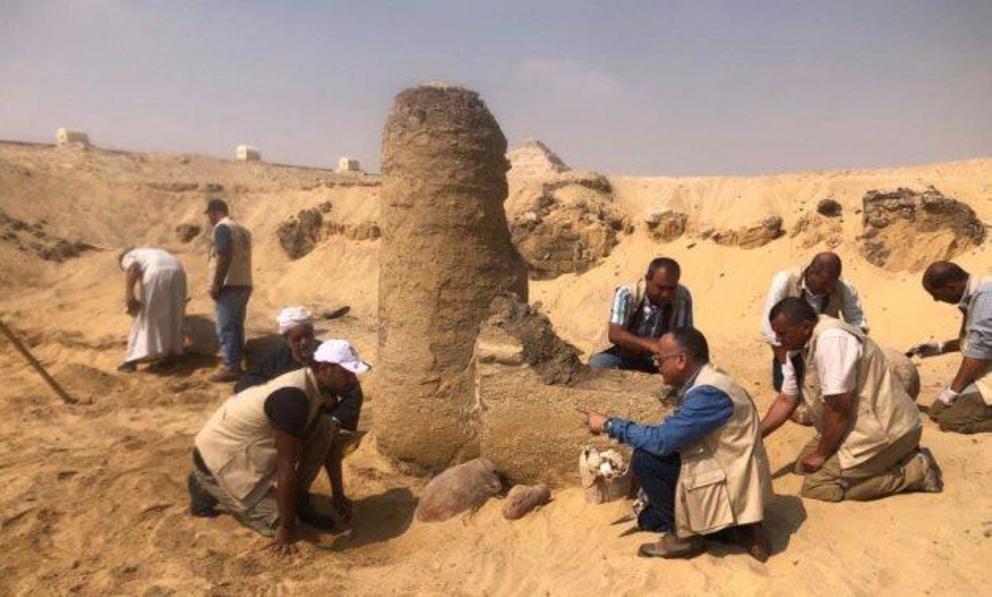
The archaeologists on saturday discovering the halloumi.
They found a large number of containers, the rest of which are planned to be open in the coming days. No speculation on whether they all contain halloumi or whether there are other cheeses—or non-cheese substances of some kind—within the pots.
The Saqqara area has been a hugely fruitful area for relics in recent years, with more than 100 sarcophagi discovered, which was turned into the 2020 Netflix documentary.
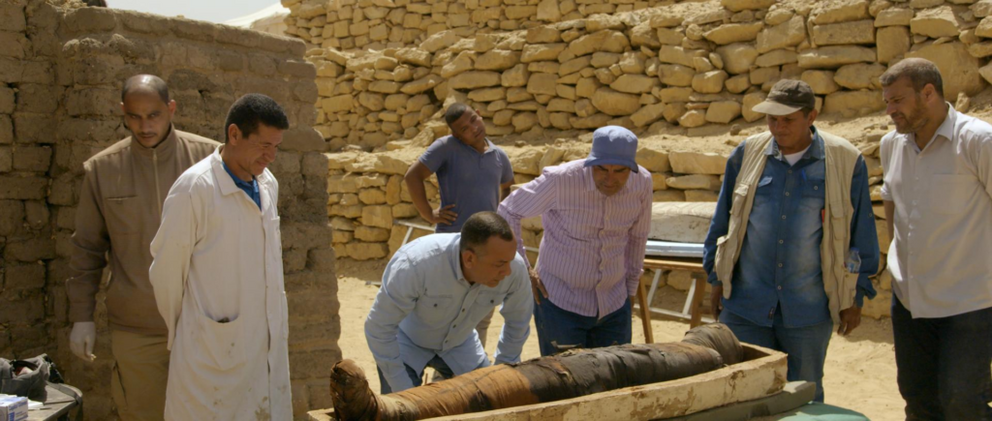
Archaeologists have more planned excavations for the area too. The Egyptian Antiquities Mission has been working on the site since 2018, and through the past five excavations seasons, it had highlights including the discovery of the unique tomb of the priest of the Fifth Dynasty “Wahi”, in addition to 7 rock tombs, including three tombs from the New Kingdom and four tombs from the Old Kingdom, and the facade of a tomb from the ancient state, in addition to the discovery of more than a thousand amulet of faience, dozens of wooden cat statues, cat mummies, wooden statues and animal mummies.
None, of course, is as delicious as halloumi.
Archaeologists in Egypt still a huge hit for Netflix
Netflix’s feature-length documentary Secret of the Saqqara Tomb, released in October 2020, was viewed by 22 million households around the world in its first four weeks, according to the streamer.
That amount puts the documentary in the top five documentary films in Netflix history, says the film’s director, James Tovell.
Netflix doesn’t often release numbers, so the figures and rankings are an interesting insight into how popular documentaries are on the platform. Extraction, the Chris Hemsworth action film released last year, was viewed by 99 million homes in its first four weeks, for comparison.
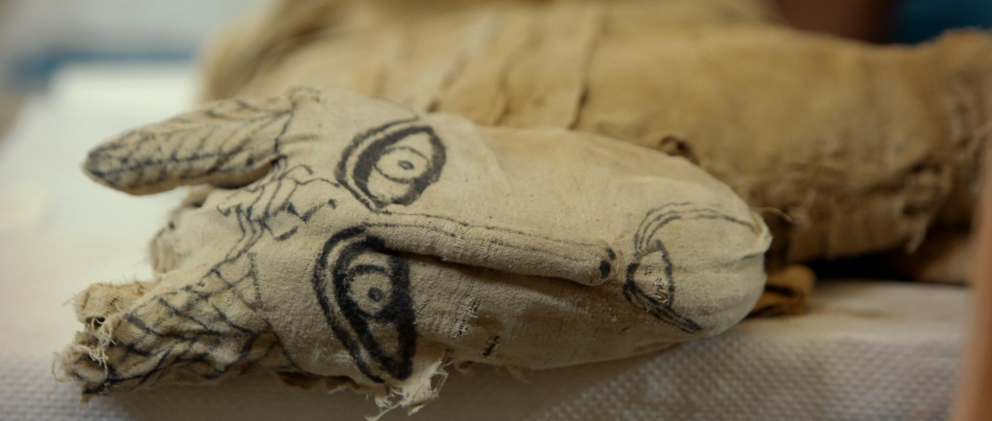
“All of these experiences and the amazing discoveries that were made have of course become all the more rewarding now that so many Netflix members have come along with us on this journey.
We’re extremely grateful to all those who have watched the film, and thrilled that so many people have found something to enjoy, from those learning about ancient Egypt for the first time to those familiar with this world who were able to learn or experience something new,” says Tovell.
